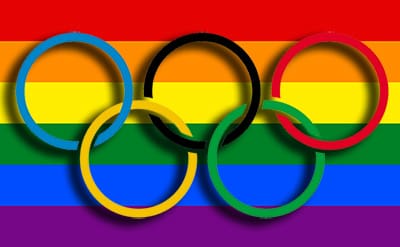IOC adds sexual orientation protection to Olympic Games
 In a ground-breaking move, the International Olympic Committee (IOC) has voted to ban discrimination on the basis of sexual orientation in its charter.
In a ground-breaking move, the International Olympic Committee (IOC) has voted to ban discrimination on the basis of sexual orientation in its charter.
On Monday, IOC members unanimously agreed in Monaco to redraft the 6th Fundamental Principle of Olympism, adding a reference to sexual orientation.
It now reads: “The enjoyment of the rights and freedoms set forth in this Olympic Charter shall be secured without discrimination of any kind, such as race, color, sex, sexual orientation, language, religion, political or other opinion, national or social origin, property, birth or other status.”
The decision followed a series of recommendations presented by IOC President Thomas Bach last month to improve the Games.
It was earlier announced that sexual orientation protection will also be included in host cities’ contracts with the IOC.
It’s been suggested that these developments may result in anti-gay countries being frozen out of hosting the Olympics.
Hudson Taylor, Executive Director of LGBT sports rights group Athlete Ally, said in a statement that, “There is no greater sign of progress in combating homophobia in sports than to have the oldest organised athletic competition in the history of the world saying enough is enough.”
He added: “The Olympic Charter took a major step today recognising that the practice of sport is a human right and that every individual must be able to practice without discrimination.”
The IOC’s changes follow the massive controversy and criticism that stemmed from Russia hosting the Winter Olympics in Sochi earlier this year. Many saw that country’s ‘gay propaganda’ law as being incompatible with being an Olympic host nation.
The Chicago Tribune points out that challenges will remain in implementing the new policy, however. Russia only passed its anti-gay law just months before the Sochi Games, making it extremely difficult to move the event.
Other countries, such as the two 2022 Winter Olympic host finalists, Beijing and Kazakhstan, may not have specific anti-gay legislation, but they have been accused of discriminating against LGBT people. In fact, there are concerns that Kazakhstan may also pass a gay propaganda law similar to Russia’s.
In October, a Kazakhstan court banned a poster depicting a gay kiss, ordered the agency behind the ad to issue a public apology and froze its assets until it paid a huge US$187,900 fine.
Leave a Reply